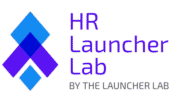Retirement benefits are no longer optional in today’s competitive job market—they’re essential for attracting and retaining top talent. Whether you’re a small business with just a few employees or a growing company, offering a retirement plan like a 401(k) or SIMPLE IRA can help you stand out as an employer of choice while also providing valuable tax advantages.
This guide will break down the most common retirement plans available to small businesses, explaining the key features, tax benefits, and compliance requirements. We’ll also offer specific examples to help you understand how to choose the best retirement plan based on your company’s size, budget, and employee needs.
- Why Your Small Business Should Offer a Retirement Plan
- Compare the Main Small Business Retirement Plans
- Assessing Tax Benefits
- Compliance Essentials for Your Retirement Plan
- Choosing a Reliable Recordkeeper
- Matching Plans to Common Scenarios
- Questions to Ask When Evaluating Providers
- Key Vendor Selection Criteria
- Pitfalls to Avoid
- Final Thoughts on Choosing the Right Employee Retirement Plan
- Employer Retirement Plans: FAQs
- Read More about Compensation & Benefits
Disclaimer #
The information on this site is meant for general informational purposes only and should not be considered legal advice. Employment laws and requirements differ by location and industry, so it’s essential to consult a licensed attorney to ensure your business complies with relevant regulations. No visitor should take or avoid action based solely on the content provided here. Always seek legal advice specific to your situation. While we strive to keep our information up to date, we make no guarantees about its accuracy or completeness.
This content may contain affiliate links, meaning we receive a commission if you decide to make a purchase through our links, at no cost to you.
For more details, refer to our Terms and Conditions.
